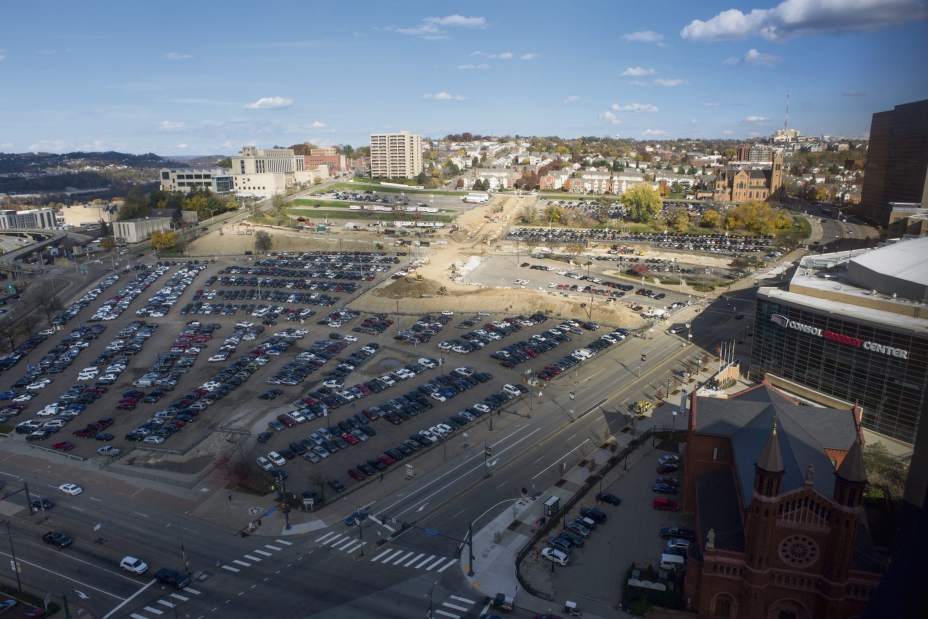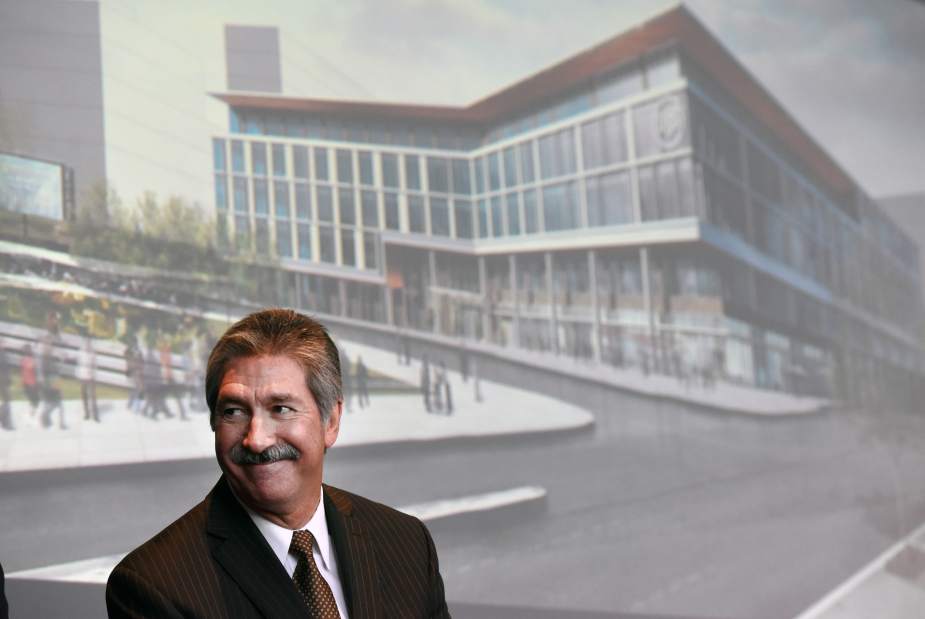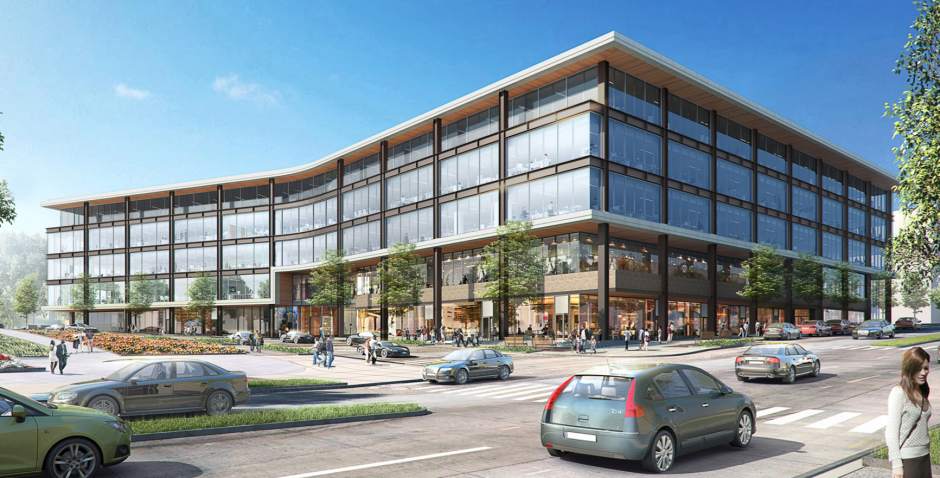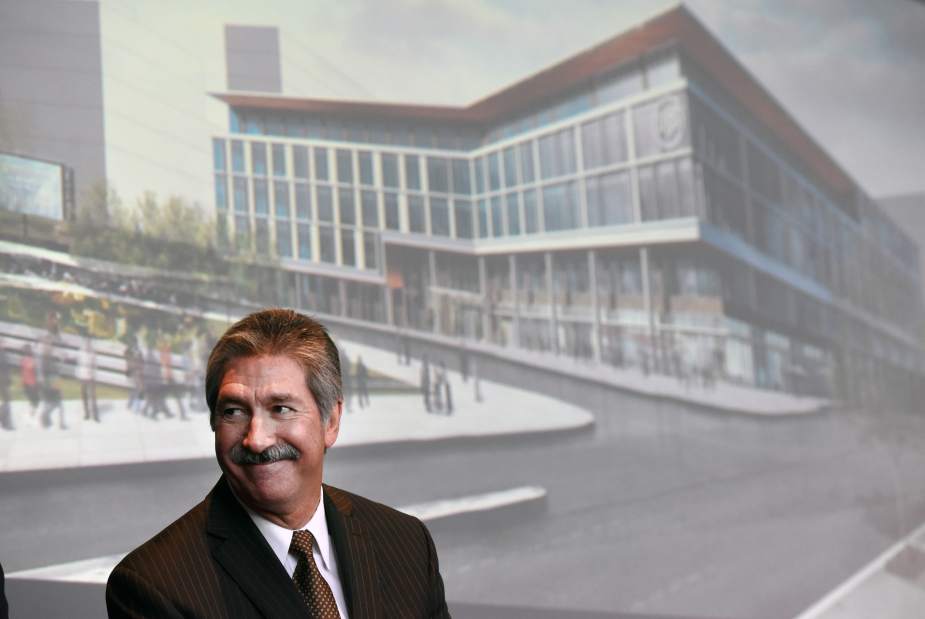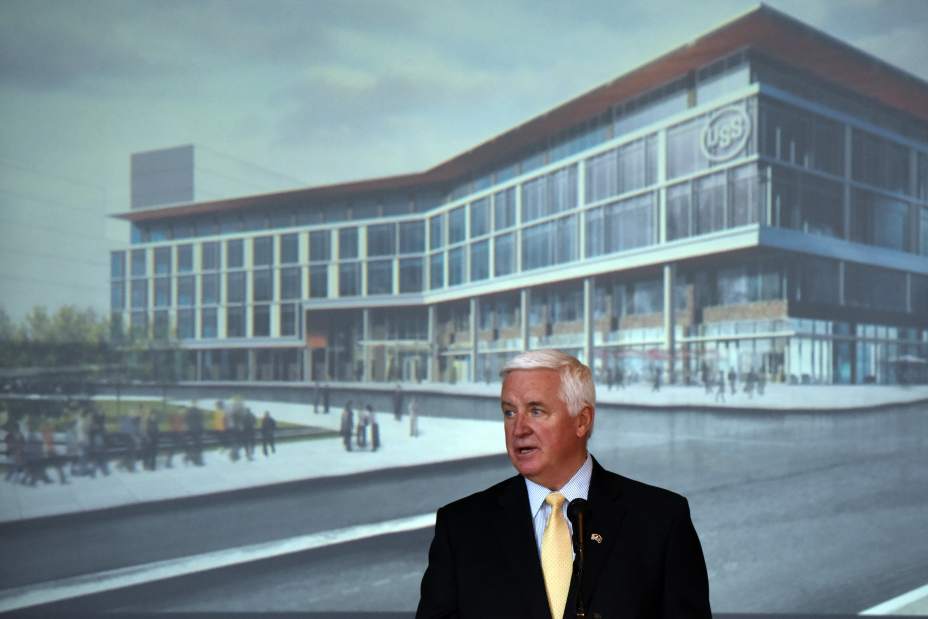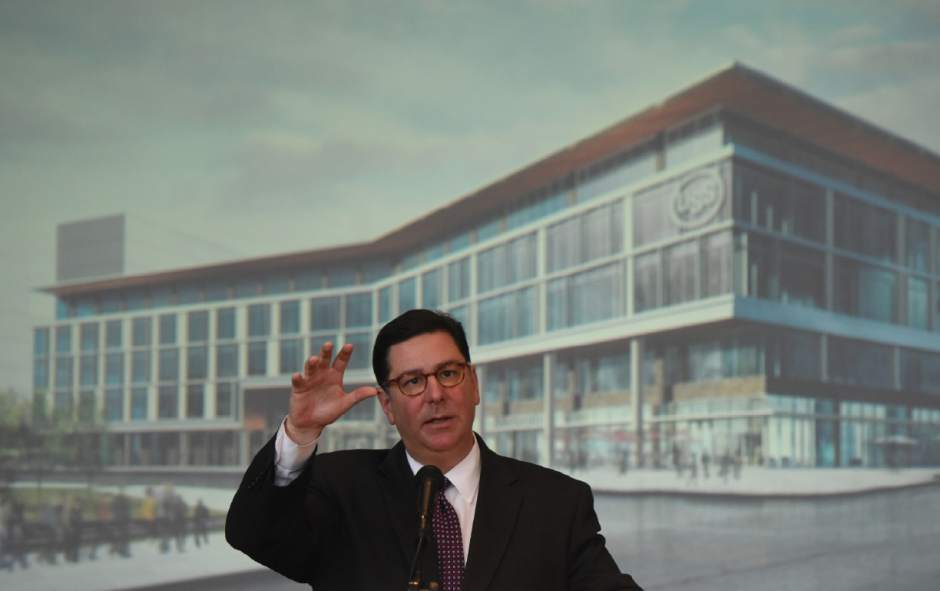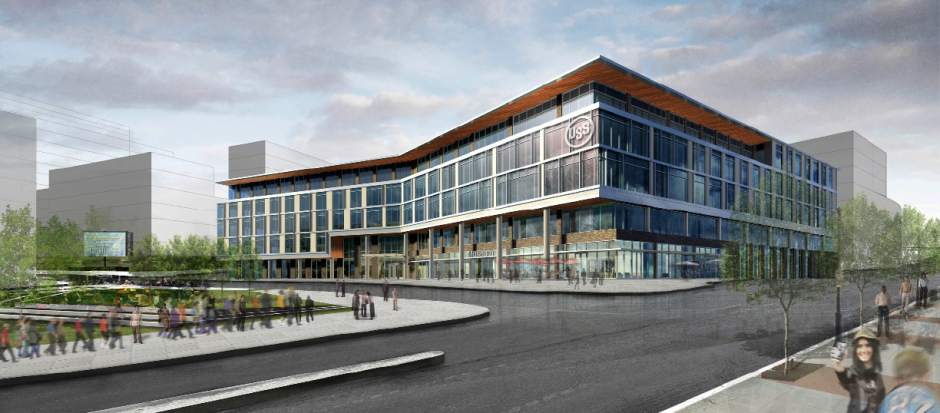U.S. Steel drops plan for new headquarters at former arena site
Struggling U.S. Steel's decision Thursday to scrap plans for a new headquarters on Pittsburgh's former Civic Arena site might delay the start of a half-billion dollars in development there, but officials insist it won't derail the project.
Pittsburgh Penguins Chief Operating Officer Travis Williams said the steelmaker notified the hockey franchise of its decision in the morning. The Penguins have exclusive development rights to the 28-acre site.
“It did not come as a surprise to us, given recent reports about the change in their financial situation. But at the end of the day, their decision is not going to have any impact on our ability to develop the arena site,” Williams said.
In an email, U.S. Steel spokeswoman Sarah Cassella said the company's headquarters will remain in Downtown's 64-story U.S. Steel Tower through the term of its lease, which was not disclosed. The company planned to move into the new five-story building in 2017. President and CEO Mario Longhi notified employees of the decision to stay put, she said, declining to comment further.
U.S. Steel won't have to pay fines or penalties for exiting the deal under terms of a letter-of-intent the company signed with the Penguins last year, team officials said. U.S. Steel did not sign a formal lease agreement.
“While we're sorry to hear of the decision by U.S. Steel, this is simply a pause button in the commercial development of the 28-acre site,” Mayor Bill Peduto and Allegheny County Executive Rich Fitzgerald said in a joint statement. “We are still moving forward with housing as originally planned, and there is continued interest in the commercial development as it remains one of the most desirable sites in all of Western Pennsylvania.”
Plans for the $500 million-plus development on Downtown's doorstep include nearly 1,100 apartments, office and retail space and a 150-room hotel. The $321 million Consol Energy Center is directly across Centre Avenue. Infrastructure work to prepare the site for development began last spring.
Williams said the Penguins originally planned to build housing before offices and retail space. The Penguins hired St. Louis-based housing developer McCormack Baron Salazar in September 2013 — just as talks began with U.S. Steel officials during a barbecue at the Sewickley home of Mario Lemieux, the former Penguins star who co-owns the team. The Penguins later hired commercial developer Clayco Realty Group, which has offices in Chicago and St. Louis, to oversee the U.S. Steel headquarters project.
When the franchise reached a tentative deal with U.S. Steel late last year, Williams said, “we shifted our focus and quickly moved heaven and earth to accomplish what they wanted us to accomplish.”
Williams said the franchise won't scrap the plans developed for U.S. Steel. It received preliminary approval from city planners in March. The team didn't say how much money it spent on that planning and design work.
“A lot of the design work has already been done. It's just a matter of whether it has to be tweaked or redesigned to meet the needs of a new tenant,” Williams said.
Several potential office tenants reached out to the team and Clayco in recent weeks because they were “wondering whether or not this particular site would become available” because of U.S. Steel's financial turmoil, he said. Clayco, which did not return calls, has been “going out and talking with (potential) new tenants,” he added.
Williams predicts the first phase of housing development could get under way by June or July. McCormack Baron will be the lead developer for up to 850 apartments, and a minority-owned firm will be selected to develop up to 250 sites.
The Penguins are required to develop one-tenth of the site annually for 10 years under a 2014 option agreement to buy the arena site from the city's Urban Redevelopment Authority and city-county Sports & Exhibition Authority. The first deadline was supposed to be late last month, but the team told the agencies that it needed a six-month extension because of the holdup with U.S. Steel.
“I can't commit to whether (work on the first one-tenth of the site) will happen within six months,” Williams said.
If it doesn't, the Penguins will have to seek another six-month extension, which carries a $75,000 fee that would be deducted from a $15 million credit the franchise has with the SEA and URA to buy land for redevelopment.
The credit was part of a 2007 deal to help keep the Penguins in Pittsburgh. The Penguins in June announced the organization hired Morgan Stanley to explore the possible sale of the team, which estimates have said could be worth $565 million to $800 million.
The 2007 deal guaranteed $15 million a year in state funding and casino proceeds to help finance construction of Consol Energy Center, along with $5 million from the SEA to help tear down the old arena.
The state awarded a $15 million grant to help pay for infrastructure work at the site, and a $1.55 million federal grant paid for design work related to a proposed “cap” over Crosstown Boulevard that would improve the connection between Downtown and the Hill District for pedestrians. Last month, officials learned they had been passed over for an $18 million federal grant that would have provided more than half of the money needed to build the cap.
The delay slows the pace at which the development can start helping to revitalize other areas of the Hill District and Uptown. Under a Local Economic Revitalization Tax Assistance district formed for the project, the site's property owners will be eligible for tax abatements but must pay up to $750,000 a year into funds for infrastructure improvements and neighborhood revitalization. It's expected to generate about $40 million over 25 years.
“I feel sadness that U.S. Steel wasn't able to work through its financial crisis” to relocate to the arena site, said Hill House Association Inc. President and CEO Cheryl Hall-Russell, a URA board member who is president and CEO of the Hill House Association, a social services nonprofit in the Hill.
“The slowdown (of the project) is a little concerning, but I still feel confident this project will happen,” Hall-Russell said.
Tom Fontaine is a staff writer for Trib Total Media. He can be reached at 412-320-7847 or tfontaine@tribweb.com.

